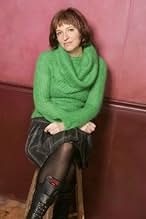Two brothers must negotiate changing roles and shifting family dynamics when one is sent to war in Afghanistan.Two brothers must negotiate changing roles and shifting family dynamics when one is sent to war in Afghanistan.Two brothers must negotiate changing roles and shifting family dynamics when one is sent to war in Afghanistan.
- Awards
- 13 wins & 21 nominations
Rebecca Løgstrup
- Camilla
- (as Rebecca Løgstrup Soltau)
Waleed Elgadi
- Samial-Tariq, Afghanistan
- (as William El-Gardi)
- Director
- Writers
- All cast & crew
- Production, box office & more at IMDbPro
Storyline
Did you know
- TriviaAlong with King's Game (2004), this was the most successful and best reviewed Danish film of the year in its native country. However, neither of these two films was submitted by Denmark to the Oscars in the Foreign Language Film category. The Danish jury decided to send a documentary film, The Five Obstructions (2003), which had only been attended by 12,532 people in Danish theaters. This story made headlines, and Danish film producers officially stated that they would force the jury to pick Brothers (2004) or "Kongekabale" instead. The jury, however, did not change their minds, and "De fem benspænd" was sent to the Oscars. It was not among the eventual nominees. "Brødre" later won several awards across the world, including at the Sundance Film Festival, and opened to stellar reviews in the US. The jury later admitted that they possibly chose the wrong film to send to the Oscars that year.
- GoofsDuring the argument in the girls' room before the funeral, the time on the alarm clock in the background jumps ahead by several minutes between shots.
- ConnectionsFeatured in Dansk films bedste: Skurke, Dialekter og Forbudt kærlighed (2022)
Featured review
"Brothers (Brødre)" is a Danish "Coming Home" crossed with "Deer Hunter" and the novels of Tim O'Brien with the added frisson of Cain vs. Abel, as updated to the war on terrorism in Afghanistan.
While I can understand how this is a new experience for Danes, it could have more impact for someone who has never seen a post-Viet Nam War movie. Otherwise it's like a fairly predictable cable TV movie about post traumatic stress syndrome on a channel that allows four letter words, including as has been done in British television films about returning peacekeepers from the Balkans.
The excellent acting rose above the stereotypes to make it very moving anyway, including very natural child actors who were very un-Dakota Fanning-like.
Nikolaj Lie Kaas is particularly charismatic on screen, even more than he was in "Reconstruction," and should now be in the international pantheon of rugged male stars who play "bad boys" really well, emphasized by portraying brunettes in the land of the blonds. So I give director/co-writer Susanne Bier extra credit for not fulfilling the most obvious direction of the plot, but instead letting tension hang in the air, which is more powerful.
Connie Nielsen, using her native language, has warm and charged chemistry with both her co-stars, but is pretty much just the beautiful wife/mother.
Unfortunately, the distributors didn't spring for American English subtitles so you have to interpret Brit slang as if you're watching BBC America. (I did learn in one instance that the F word sounds pretty much the same in Danish as in English but the subtitles didn't match that sound again so I was wondering what other curse words were being replaced with the fundamental English one.) Some times the translation is just plain confusing; for example, the word "assaulted" seems to have a different connotation than something in the Danish dialog, as a plot point gets confused for a subtitle reader. The translation is particularly a problem during a critical scene where the older girl has an outburst, as it's quizzical how scatological her terms were in Danish as opposed to the English choices to understand how incendiary the scene really is.
The Afghans are uniformly shown with the same level of subtlety as North Vietnamese, let alone Nazis, in prisoner-of-war movies. It is ironically interesting that English is now the lingua franca between freedom fighters everywhere.
The cinematography is beautifully color saturated, but is grainy; perhaps it's blown up from video.
While I can understand how this is a new experience for Danes, it could have more impact for someone who has never seen a post-Viet Nam War movie. Otherwise it's like a fairly predictable cable TV movie about post traumatic stress syndrome on a channel that allows four letter words, including as has been done in British television films about returning peacekeepers from the Balkans.
The excellent acting rose above the stereotypes to make it very moving anyway, including very natural child actors who were very un-Dakota Fanning-like.
Nikolaj Lie Kaas is particularly charismatic on screen, even more than he was in "Reconstruction," and should now be in the international pantheon of rugged male stars who play "bad boys" really well, emphasized by portraying brunettes in the land of the blonds. So I give director/co-writer Susanne Bier extra credit for not fulfilling the most obvious direction of the plot, but instead letting tension hang in the air, which is more powerful.
Connie Nielsen, using her native language, has warm and charged chemistry with both her co-stars, but is pretty much just the beautiful wife/mother.
Unfortunately, the distributors didn't spring for American English subtitles so you have to interpret Brit slang as if you're watching BBC America. (I did learn in one instance that the F word sounds pretty much the same in Danish as in English but the subtitles didn't match that sound again so I was wondering what other curse words were being replaced with the fundamental English one.) Some times the translation is just plain confusing; for example, the word "assaulted" seems to have a different connotation than something in the Danish dialog, as a plot point gets confused for a subtitle reader. The translation is particularly a problem during a critical scene where the older girl has an outburst, as it's quizzical how scatological her terms were in Danish as opposed to the English choices to understand how incendiary the scene really is.
The Afghans are uniformly shown with the same level of subtlety as North Vietnamese, let alone Nazis, in prisoner-of-war movies. It is ironically interesting that English is now the lingua franca between freedom fighters everywhere.
The cinematography is beautifully color saturated, but is grainy; perhaps it's blown up from video.
- How long is Brothers?Powered by Alexa
Details
- Release date
- Countries of origin
- Official sites
- Language
- Also known as
- Брати
- Filming locations
- Production companies
- See more company credits at IMDbPro
Box office
- Gross US & Canada
- $389,220
- Opening weekend US & Canada
- $8,161
- May 8, 2005
- Gross worldwide
- $489,706
- Runtime1 hour 57 minutes
- Color
- Sound mix
- Aspect ratio
- 1.85 : 1
Contribute to this page
Suggest an edit or add missing content






























